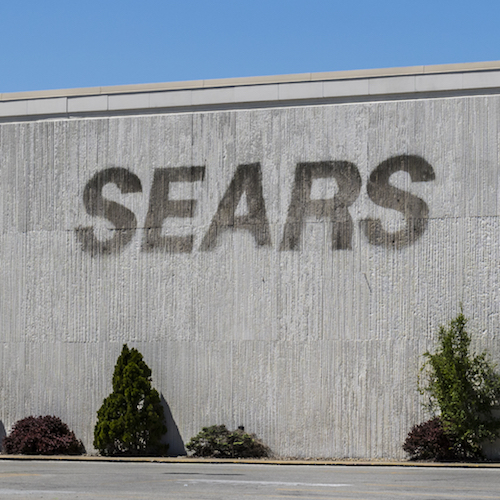
In another sign that the traditional retail industry is falling apart, research firm Moody’s reported that retailer defaults reached an all-time high in the first quarter of 2018.
The news is also a sign that many retailers became overleveraged as they tried to expand, only to hit a sea change in the foot traffic to their locations and low traffic to their e-commerce sites as well.
Moody’s analysts wrote:
The corporate sector saw nine retail defaults in the first quarter, reflecting the fallout of changing consumer behavior and advancing e-commerce for traditional brick-and-mortar retail. In total, the corporate sector saw 28 defaults in the first quarter, compared with 23 in the same period a year ago. After retail, oil & gas was the biggest contributor with five defaults.
The latest retail defaults included Sears Holdings Corp., which completed a distressed exchange to push out debt maturities and reduce its interest burden. Claire’s Stores Inc. filed for Chapter 11 after struggling with persistent weak performance because of declining mall traffic and an increasingly competitive retail landscape.
Last year, according to the agency, it forecast that 14% of retailers who had issued debt found that debt had become “distressed.” It also predicted historically high defaults in 2018.
While the report did not mention Amazon.com Inc. (NASDAQ: AMZN), the massive online retail operation continues to be the primary enemy of the brick-and-mortar retail sector. Amazon has faced a backlash recently as the president and state and local officials complain that it does not pay its share of taxes in many places. At the same time, the argument goes, brick-and-mortar retailers do, which puts them at another financial disadvantage.
Another reality that the Moody’s research points to is that retail layoffs are likely to continue, if not accelerate. The liquidation of a retailer the size of the Sears and Kmart divisions of Sears Holdings Corp. (NASDAQ: SHLD) would cost many tens of thousands of jobs. Smaller workforce cuts and store closings will be part of the retail industry for years to come as retailers attempt to cut costs to improve margins. The retreats may not work as some retailers create smaller and smaller footprints, and thus less market share.
The Moody’s evaluation is not just a look backward at defaults. It is also a warning.
100 Million Americans Are Missing This Crucial Retirement Tool
The thought of burdening your family with a financial disaster is most Americans’ nightmare. However, recent studies show that over 100 million Americans still don’t have proper life insurance in the event they pass away.
Life insurance can bring peace of mind – ensuring your loved ones are safeguarded against unforeseen expenses and debts. With premiums often lower than expected and a variety of plans tailored to different life stages and health conditions, securing a policy is more accessible than ever.
A quick, no-obligation quote can provide valuable insight into what’s available and what might best suit your family’s needs. Life insurance is a simple step you can take today to help secure peace of mind for your loved ones tomorrow.
Click here to learn how to get a quote in just a few minutes.
Thank you for reading! Have some feedback for us?
Contact the 24/7 Wall St. editorial team.




